Paris, France: 2025 Business Aviation Destination Guide
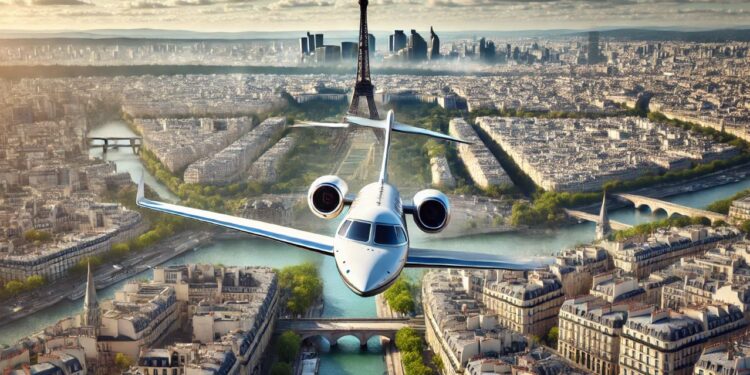
For more information on France, visit our Destination and High-Traffic Event Guides:

Paris is one of the most visited cities in the world and is a very popular business aviation destination. As a result, business jet operators have plenty of choices for service providers at the city’s airports.
Paris Le Bourget (LFPB) is one of the most business aviation-friendly airports in Europe in terms of operating flexibility, available services, and maintenance support.
Here’s what you need to know:
Airport Options
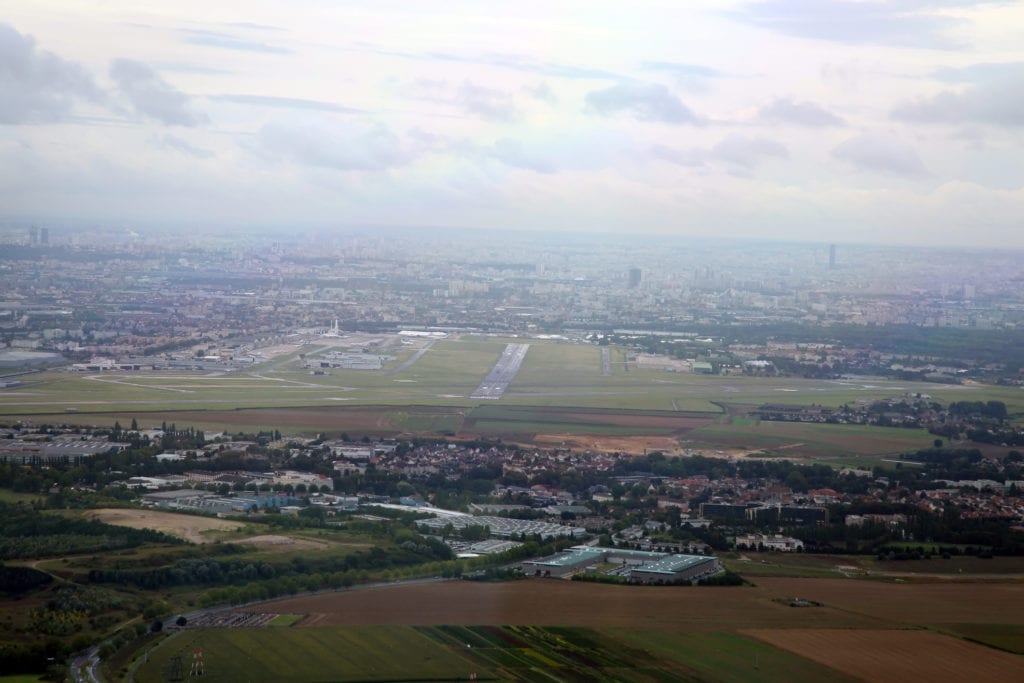
Paris le bourget airport is the best option for business aviation flights.
Paris has three airports, but two – Charles de Gaulle (LFPG) and Orly (LFPO) – are primarily dedicated to scheduled commercial operations.
LFPG allows General Aviation (GA) operations for passengers with airline connections only, and aircraft may only stay on the ground for a few hours.
LFPO is reserved almost exclusively for commercial traffic, except for diplomatic flight movements and passengers with airline connections, at which point the aircraft transporting them may only stay on the ground for a few hours.
Le Bourget (LFPB) accepts private non-revenue flights and charter (non-scheduled commercial) operations and is the most popular business aviation airport in Paris and the first choice for most operators. Le Bourget is a user-friendly facility with plenty of aircraft parking and complete support services available.
Distance to Central Paris
Le Bourget and LFPG are located northeast of Paris, while LFPO is to the southeast. Driving time to central Paris from either airport can range from 20 minutes to 1.5 hours, depending on traffic conditions.
Le Bourget
No PPRs or airport slots are required for Le Bourget.
Parking
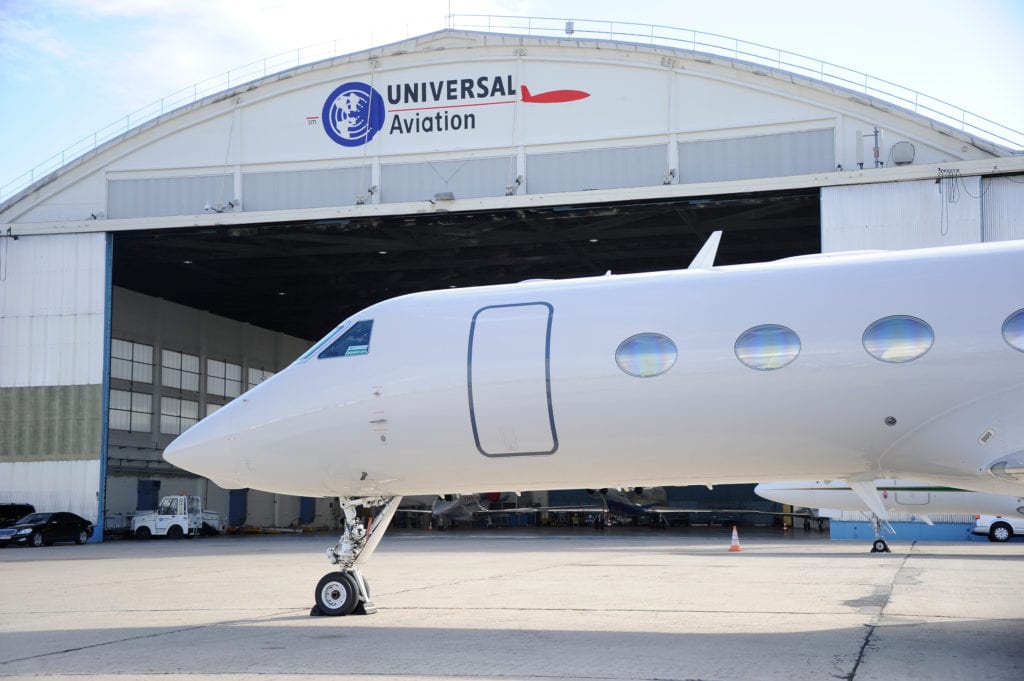
Le Bourget offers extensive parking facilities year-round, with temporary limitations during the Paris Air Show (held in odd-numbered years). Ground handler-controlled ramp areas accommodate extended stays without restriction, though widebody aircraft (wingspan >175ft/53m) must pre-notify for special parking allocation. During peak periods, overflow aircraft are limited to quickturns only.
Hangar space accommodates aircraft up to BBJ dimensions (height ≤39ft/12m, wingspan ≤131ft/40m), with reduced availability during winter months. On-site maintenance support is available from major manufacturers including Bombardier, Cessna, Dassault, Raytheon, Embraer, and Gulfstream.
FBOs & Ground Handling
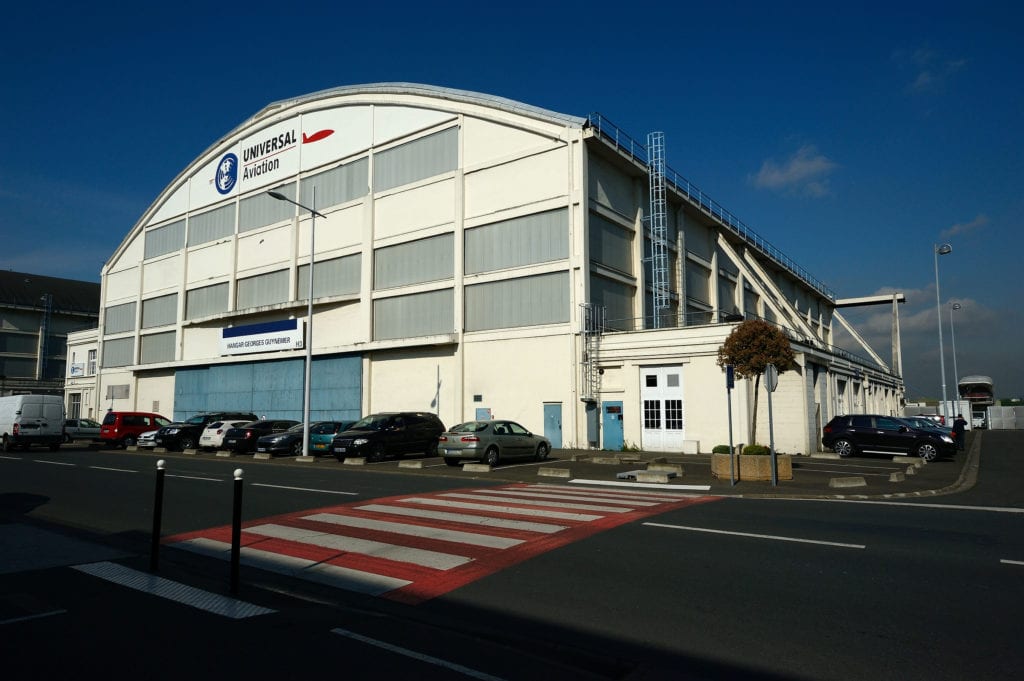
Universal Aviation France has been established at Le Bourget for more than 30 years. Facilities include a lounge, crew lounge, and heated 3,000 sqm hangar that can accommodate aircraft up to BBJ size. The ramp is located in front of FBO.
There are no airport slots at Le Bourget. FBOs need to be included in section 18 of your flight plan. Gendec is required for all flights, including place of birth. CIQ is done at the FBO and sometimes at the bottom of the aircraft allowing for a quick arrival.
All 3rd-party services, including in-flight catering, transportation, and aircraft services, can be set up on credit by your ground handler. In-flight catering menus are provided to the operator as needed.
Aircraft Equipment
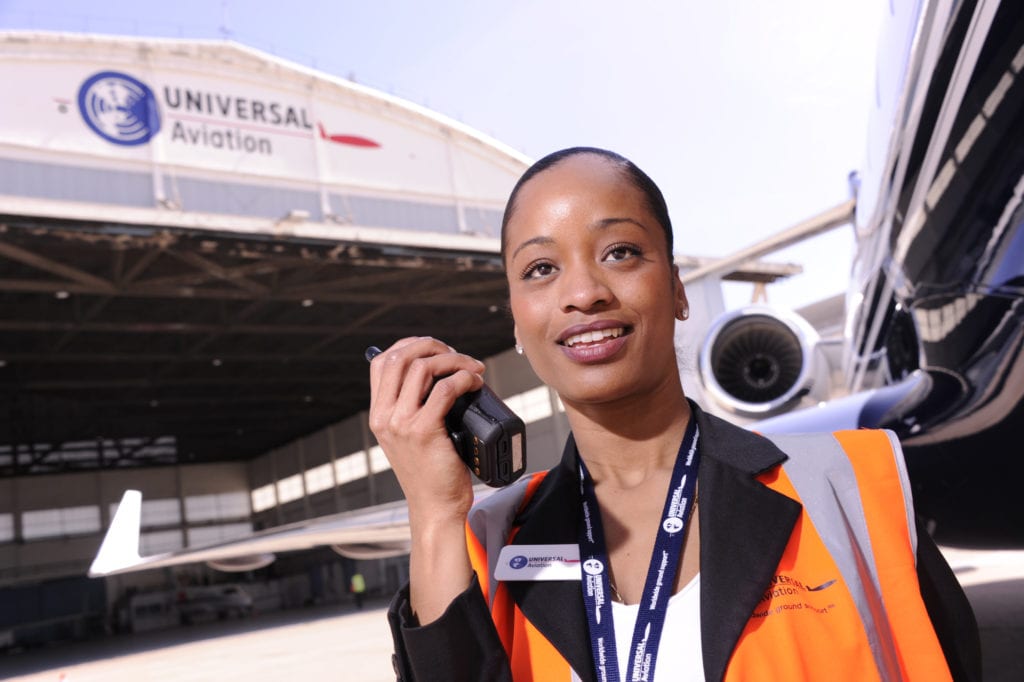
Most Paris FBOs and ground handlers have all required equipment. Universal Aviation Paris has equipment capable of supporting wide-body aircraft.
Le Bourget has an APU limitation that is strictly enforced. The use of APU is restricted, except for duly justified safety reasons. The use of fixed alternative means (400 Hz or 50 Hz power supply and PCA) or, when unavailable, alternative mobile means (GPU and ACU) provided to the operator is mandatory, except in case of system failure or technical incompatibility.
For departing flights:
- On parking stands not equipped with such alternative means, the use of APU is limited to 60 minutes for aircraft with an MTOW <140t and 80 minutes for aircraft with an MTOW > 140t.
For arriving flights:
- On parking stands not equipped with such alternative means, the use of APU is limited to 30 minutes or the required time to disembark all passengers, offload the cargo haul and perform all operations related to the arrival
French CAA performs random ramp checks.
Aviation Fuel
There are a few different fuel suppliers on the field at Le Bourget, and there are no restrictions on which fuel supplier you may use. It’s best, however, to specify in advance which fuel supplier you’d like to deal with. Major aviation fuel cards are typically accepted. Still, it’s always a good policy to carry a fuel release.
No Avgas is available at Le Bourget.
Charles de Gaulle
LFPG allows departures 0500-2359 local and arrivals 0530-2359 local. All departures 0001-0459 local and arrivals 0030-0529 local are specified to scheduled commercial operators (GA nighttime operations are not possible after midnight).
LFPG requires airport slots (deviation -5 minutes / +10 minutes) and a PPR (at least 24 hours notice is required). The airport slot confirmation number must be included in field 18 of the flight plan. You must notify the ground handler or the airline if you’re dropping off or picking up passengers with confirmed seats on commercial flights.
LFPG allows GA parking for only a few hours. Overnight stays may also be possible with prior arrangement. LFPO also restricts GA ops to a few hours on the ground, with no arrivals before 0930 and no departures 1900-2100 local. No hangar space or maintenance options are available for GA at LFPG or LFPO. If you have maintenance issues at either LFPG or LFPO, it may take 72 hours to obtain ramp access for a mechanic. If the aircraft can operate, it’s best to reposition to Le Bourget.
Orly
LFPO is open 0600-2330 local, but only GA flights with commercial airline connections are permitted to land at LFPO, and Prior Permission Required (PPR) is needed. All aircraft will require PPR at both airports.
LFPO requires airport slots (deviation -/+ 15 minutes) and a PPR (24 hours notice is required to obtain this). Restrictions at LFPO are similar to LFPG.
Paris Hotels

High-quality hotels – including large international chains – are plentiful in Paris.
Universal Aviation Paris has negotiated special rates with most hotels. These may not apply during high season or special events
Paris Ground Transport
Pre-paid transportation with a driver is recommended, but rental cars are available at all three airports if requested. However, due to heavy traffic in the Paris area, many people are not comfortable with rental car options.
Paris In-flight Catering
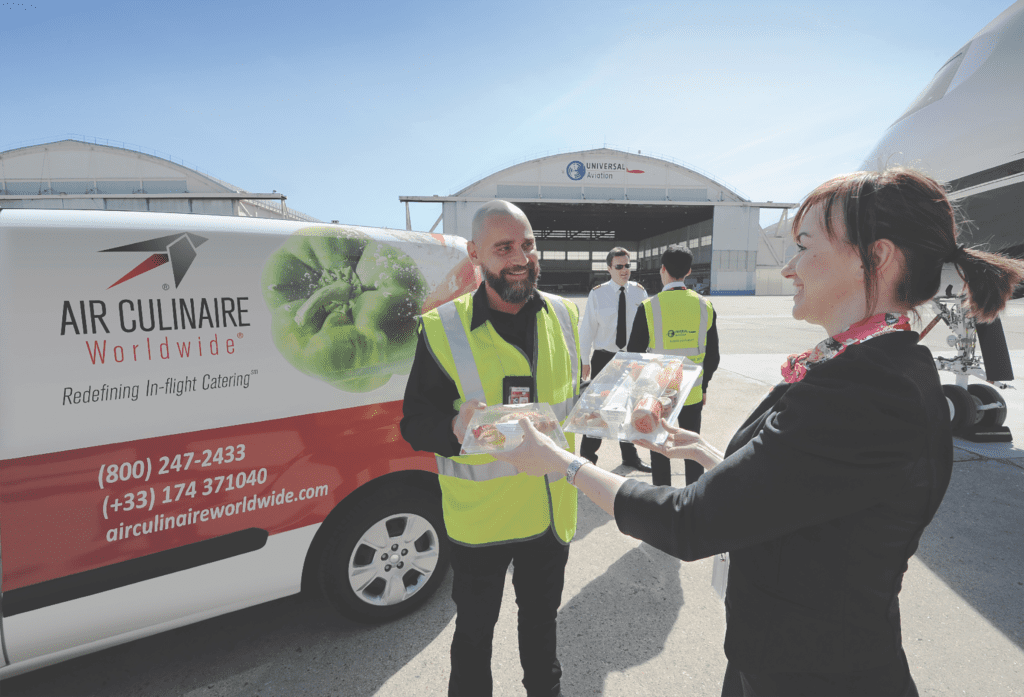
In-flight caterers are available at all Paris airports and can provide menus upon request. Catering is usually delivered directly to the aircraft, and in-flight caterers have ramp access approval. If the crew brings catering from restaurants, this must go through security screening.
In 2016, Air Culinaire Worldwide opened a new Paris kitchen on-site at Paris-Le Bourget Airport.
You can check Air Culinaire Worldwide to see catering options and menus available.
Our blog has more information on best practices for in-flight catering in France.
Paris Airport Security
All three Paris airports are secure facilities, with police patrols and surveillance on ramp areas.
Paris Customs and Immigration
Passengers and crew clear customs in the main terminal (with commercial passengers) at both LFPG and LFPO. You’ll have to arrange van transport to the terminal, and clearing customs could take 30-60 minutes. A VIP terminal is available for diplomatic flights at LFPO & LFPG.
Clearance is a more manageable five to 10-minute procedure – within the Fixed Based Operator (FBO) 24 hours a day – at Le Bourget. There are no charges or fees associated with customs clearances at any Paris airport. If you have passengers connecting to a commercial flight – particularly at LFPG – it’s advisable to land at Le Bourget and arrange ground transport (10-15 minutes) to LFPG. This results in cost savings due to Le Bourget’s lower landing and handling fees. Also, it is quicker due to the time savings that crew, passengers, and luggage have clearing customs.
Peak Season
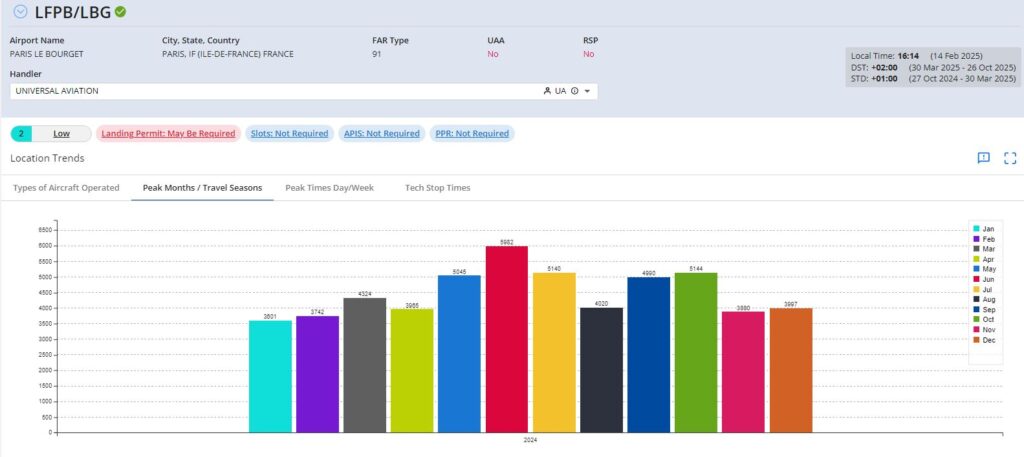
Get more traffic trends in insights in Feasibility-IQ.
Summer is the peak season for much of France, including Paris. Additional high-traffic periods coincide with major events such as Fashion Weeks and sporting events such as the French Open, Grand Prix events, the Paris Airshow, and film festivals.
Weather
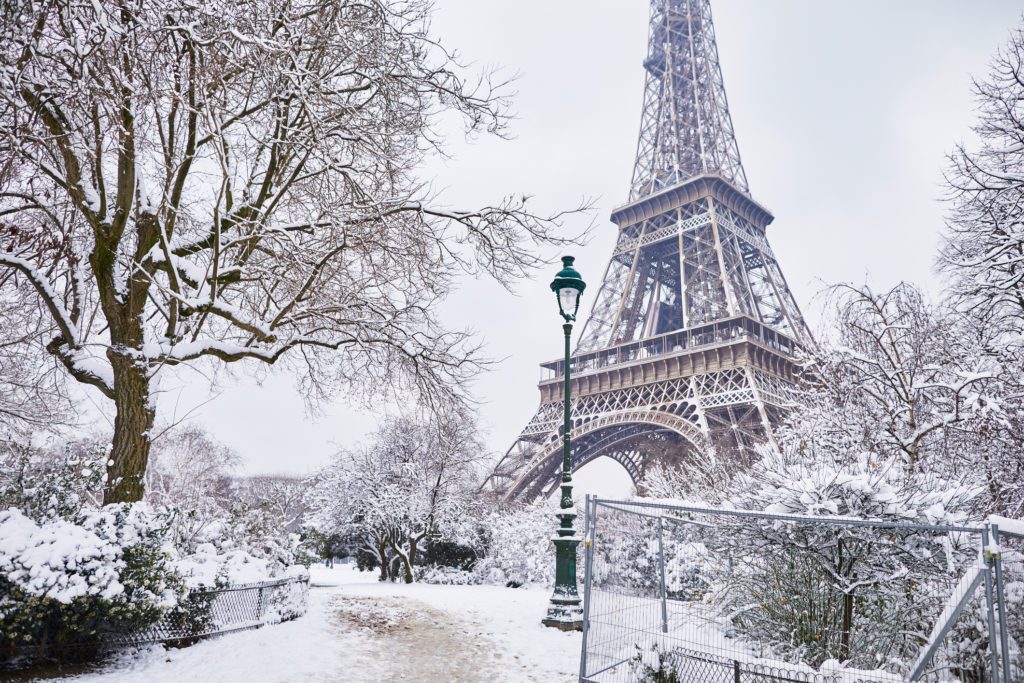
Winter season in northern France is November through early March, with December and February being the coldest months. During winter, there’s often morning fog to consider, with snow accumulation, on occasion, November through April. Average winter temperature in the Paris area is 3-4oC (37.4-39.2oF), but temperatures dropped as low as -13C (8.6oF) last year. Over recent winters, there’s been snow at LFPB, and recently LFPB airport authorities have invested in additional snow removal equipment. They’ve been diligent in removing snow on runways and taxiways but slower in terms of removing snow accumulation from ramp areas.
Be aware that there may be potential for operational delays when departing LFPB during winter time. This may include morning fog issues and delays due to availability of de-icing equipment. Road conditions may be slower during colder periods, so plan on additional driving time between the airport and city center. In-flight catering, sourced off-airport, may also experience delays due to inclement weather. It’s always best to provide at least 24 hours’ notification of catering requirements and to have catering delivered to the airport/aircraft earlier during winter months. Additionally, during cold weather or snow events, Fixed Base Operator (FBO) and airport employees may not be able to get to the airport on time, which may add to operational delays.
De-icing equipment/services are offered by three suppliers at LFPB. There may, however, be delays of 30-60 minutes or longer to de-ice aircraft during winter. In rare cases, the airport runs out of de-ice fluid when cold weather conditions last longer than expected. If you plan to depart early in the morning, and icing conditions are expected, it’s best to keep your aircraft in a hangar overnight.
Conclusion
While it’s rare for business aviation operators to utilize LFPG – and even less common to operate into LFPO – there may be times you’ll want to consider these options (mainly if operating a diplomatic flight). But, again, a 3rd-party provider can help review the limitations of these scheduled commercial-focused Paris airport options in advance.
The customs process into Paris is straightforward for private non-revenue and charter (non-scheduled commercial) aircraft operators. Documentation requirements are not onerous, and business aircraft operators can look forward to a full range of support facilities and services at Le Bourget (LFPB) once the customs process is completed. The other airports in Paris – Orly (LFPO) and Charles de Gaulle (LFPG) – don’t cater to business aviation flights.
Operations to all of the airports in Paris are straightforward from a flight-planning perspective. Still, one must consider the documentation needed, airport procedures, and services available at each location. For this reason, a 3rd-party provider may assist you in reviewing requirements and arranging services required for your trip.




